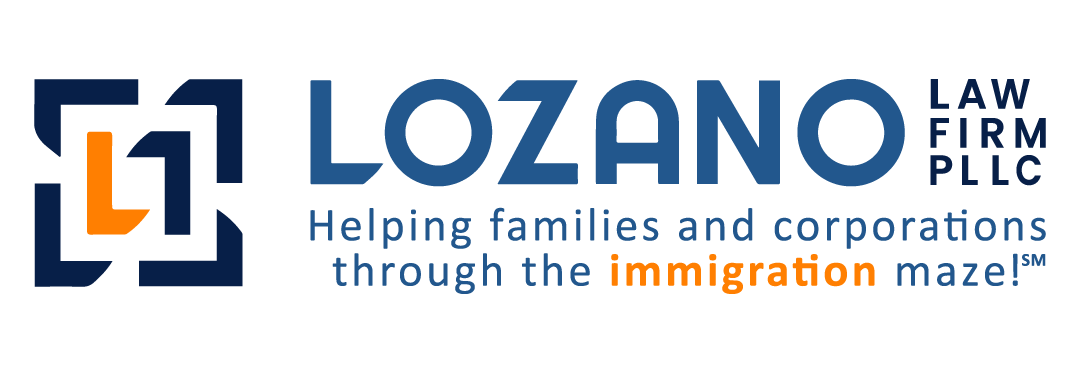Entering the U.S. market through an E-1 Treaty Trader Visa is like opening a door to boundless business opportunities. It allows foreign entrepreneurs and companies to establish and grow their trade presence in the country. However, one of the most important requirements is proving that the trade is substantial. Without this, even the most promising ventures can struggle to gain visa approval.
Determining what qualifies as substantial trade can be confusing, as no fixed dollar amount defines it. The assessment relies on multiple factors, including transaction volume, consistency, and financial impact. Applicants must present clear evidence that their trade is continuous, viable, and primarily between the U.S. and their treaty country.
This article breaks down the substantial trade requirement, helping entrepreneurs understand how to qualify and successfully apply for an E-1 Visa.

Understanding The E-1 Treaty Trader Visa
The E-1 Visa is a nonimmigrant visa that allows individuals or businesses from treaty countries to engage in international trade with the U.S. The visa enables qualified traders and key employees to enter, work, and manage trade-related activities in the U.S. However, meeting the substantial trade requirement is essential for approval.
Not everyone can apply for an E-1 Visa. The applicant must be a national of a country that has a treaty of commerce and navigation with the United States. Additionally, they must demonstrate that they are actively involved in ongoing, significant trade between the two countries. Meeting these conditions is the first step toward securing legal entry under this visa category.
To qualify for an E-1 Visa, applicants must meet specific legal and trade-related requirements. These include:
- Nationality: The applicant must be a citizen of a country that maintains an eligible treaty with the U.S.
- Trade Activities: The business must engage in international trade involving goods, services, or technology.
- Principal Trade Requirement: More than 50% of the business’s total international trade must occur between the U.S. and the treaty country.
The U.S. grants this vis to legitimate traders who contribute to economic exchange between their home country and the U.S. The applicant must also prove their trade is regular, viable, and substantial. Without meeting these conditions, the visa application is unlikely to succeed.
The next section explores what substantial trade means and how the U.S. government evaluates it.
Defining Substantial Trade
Determining what qualifies as substantial trade under the E-1 Visa can feel like trying to measure the strength of a river. A single large wave does not define a strong current, just as one high-value transaction does not establish substantial trade. Instead, substantial trade is measured by the continuous flow of business between the U.S. and the treaty country. The goal is to demonstrate that the business engages in consistent, meaningful trade that benefits both economies.
Since U.S. immigration law does not set a strict financial threshold, substantial trade is evaluated using multiple factors. The government looks at the number of transactions, their total value, and whether the trade is ongoing.
To evaluate substantial trade, U.S. authorities consider:
- Volume Of Trade. Frequent and recurring transactions indicate a stable and ongoing trade relationship. Businesses that engage in multiple smaller transactions often have an advantage over those relying on occasional high-value exchanges.
- Monetary Value. If a company’s trade generates substantial revenue, it strengthens the case for an E-1 Visa. The business must prove that its trade is financially meaningful and contributes to economic activity.
- Continuous Flow Of Trade. A strong E-1 Visa application will show trade activity that is not sporadic or occasional. A company with a steady flow of trade, rather than inconsistent deals, is more likely to meet the substantial trade requirement.
Demonstrating substantial trade requires clear documentation of these factors. The next section explores the types of trade activities that qualify under the E-1 Visa program.
Types Of Qualifying Trade Activities
Trade is more than just the exchange of physical goods. Under the E-1 Visa program, qualifying trade includes a broad range of activities that contribute to commerce between the U.S. and the treaty country. Whether a business deals in products, services, or intellectual property, the key requirement is that the trade is continuous and substantial.
For many, the word trade brings to mind large shipping containers filled with manufactured goods. While physical goods certainly qualify, trade also includes services and technology transfers. The U.S. immigration system recognizes that modern commerce extends beyond tangible products, allowing businesses from various industries to apply.
The following categories of trade meet E-1 Visa eligibility requirements:
- Goods. The import or export of physical products, such as automobiles, medical devices, agricultural products, or industrial machinery, qualifies as trade.
- Services. Qualifying services include legal and financial consulting, marketing, engineering, technology support, and international banking. For E-1 Visa approval, the service transactions must be documented and show consistent revenue generation.
- Technology & Intellectual Property. Businesses involved in the transfer of technology, licensing agreements, and intellectual property exchanges may also qualify. This includes software development, digital services, patents, and trademarks.
Regardless of the type of trade, businesses must show a steady flow of transactions between the U.S. and the treaty country. A company that sporadically exports goods or provides occasional services may struggle to meet the substantial trade requirement. The next section examines how trade volume and continuity impact E-1 Visa eligibility.
Assessing The Volume & Continuity Of Trade
Determining substantial trade is like evaluating the health of a thriving business. A successful company does not rely on one or two large deals but maintains steady and frequent transactions. The same principle applies when assessing E-1 Visa eligibility. The trade must be significant in quantity and sustained over time.
Key considerations for trade volume:
- Number Of Transactions: More transactions spread over time indicate strong trade activity.
- Consistency: Regular transactions are preferred over sporadic, high-value exchanges.
- Economic Contribution: The trade must be substantial enough to support the business’s financial health.
U.S. authorities look for steady commerce rather than isolated deals. Businesses that trade regularly, even in smaller amounts, are more likely to meet the visa requirements. This brings us to the next important concept—ensuring that most of the trade occurs between the U.S. and the treaty country.
Principal Trade Between The U.S. & Treaty Country
The E-1 Visa is designed for businesses that conduct the majority of their trade with the U.S. Think of this requirement as a partnership—both countries must benefit significantly. The application may not be approved if less than 50% of a company’s trade is with the U.S.
Key principal trade requirements:
- Majority Trade With The U.S.: More than half of the total trade must be conducted between the applicant’s country and the U.S.
- Documented Transactions: The business must provide evidence of shipments, contracts, and financial transactions proving principal trade.
Failure to meet this requirement could result in visa denial. Applicants must maintain clear records of their trade activities to avoid complications. The next section explores the necessary documentation to strengthen an application.
Documentation & Evidence Requirements
Just as a well-prepared business plan is essential for securing investment, a well-documented application is crucial for proving substantial trade. U.S. immigration authorities require clear and convincing evidence that the trade is both ongoing and financially meaningful.
Since there is no fixed monetary threshold for substantial trade, the burden falls on the applicant to provide detailed records. Every piece of evidence must contribute to a clear and organized case that meets U.S. Citizenship and Immigration Services (USCIS) and consular officer expectations.
Invoices & Contracts
Copies of signed contracts, purchase agreements, and invoices that show regular and significant trade transactions. These documents help establish the volume and consistency of trade.
Shipping & Customs Records
Bills of lading, freight receipts, and customs declarations that prove the movement of goods between the U.S. and the treaty country. These are particularly important for businesses engaged in physical product exports and imports.
Bank Statements & Financial Reports
Statements showing payments received for goods or services and overall financial health, as well as profit and loss statements, balance sheets, and audited financial reports, further strengthen the case.
Tax Returns & Business Licenses
Evidence that the business is legally registered and compliant with tax laws in both countries. These documents help establish credibility and operational legitimacy.
All documentation should be well-organized and easy to understand. Immigration officers review numerous applications, and unclear or incomplete records can lead to delays or denials. Organizing documents chronologically and including a cover letter summarizing key evidence can help streamline the review process.
Providing thorough documentation increases the likelihood of approval, demonstrating that the trade meets both substantial and principal trade requirements. Next is the step-by-step process for applying for an E-1 Visa.
Lozano Law Firm: Assisting With Your E-1 Visa Application

Navigating the E-1 Visa process alone can be overwhelming. The Lozano Law Firm, based in Texas, offers skilled legal guidance for entrepreneurs seeking this visa. Our team ensures that every application meets USCIS standards, reducing the chances of errors and delays.
Services we provide:
- Legal Consultation: Assessing eligibility and trade qualifications.
- Application Assistance: Organizing and preparing required documents.
- Representation: Advocating for clients during visa interviews and requests for additional evidence.
With years of immigration law experience, the Lozano Law Firm provides trusted legal support. Our commitment to client success ensures a smooth application process. We are ready to help those seeking an E-1 Visa.
The E-1 Visa allows entrepreneurs and businesses from treaty countries to trade with the U.S., but proving substantial trade is crucial for approval. A set dollar amount doesn’t define substantial trade; it’s evaluated based on transaction volume, consistency, and economic impact. Proper documentation is essential. The Lozano Law Firm provides legal support to streamline the application process.


 Thank you for contacting us. Please complete this form and one of our team members will be in touch with you soon.
Thank you for contacting us. Please complete this form and one of our team members will be in touch with you soon.

